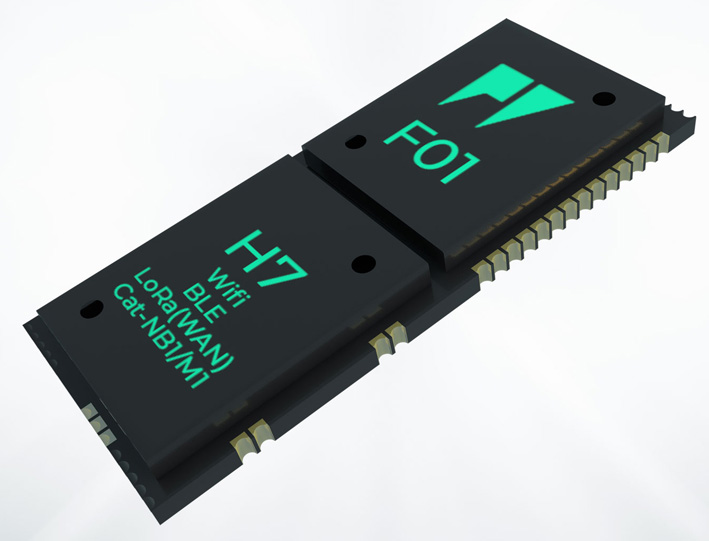Murata and Pycom reduce time for IoT projects
- June 16, 2021
- Steve Rogerson

Time-to-market for IoT projects could be reduced by around 70 per cent due to a collaboration between Japanese electronics company Murata and UK-based IoT firm Pycom.
The collaboration brings together Murata’s IoT radio module technology and Pycom’s design and integration expertise in rapid IoT development and scaling.
From September 2021, those implementing IoT projects can take advantage of a Murata-based Pycom evaluation kit (EVK) that delivers full-stack IoT. Suitable for companies looking to develop and scale IoT with low-power devices, long battery life and high levels of device reliability, the F01 H7 EVK makes it possible to save time and money by moving rapidly and seamlessly through all IoT project stages from conception to completion.
Developers can go from EVK to building final products without losing time redesigning or recoding.
The kit is complemented by Pycom’s cloud-based device management platform and a software development kit (SDK) helping the user easily manage their devices, LPWANs and data feed from commissioning through to deployment stages.
“Many IoT projects struggle to develop and deliver reliably connected devices that perform sustainably in the field,” said Fred de Haro, CEO of Pycom. “This means project implementation is slowed down considerably. Our collaboration with Murata offers a new hardware and cloud platform that’s quick to develop and flexible through all project phases, including development, manufacture, integration, testing and all the way to large scale deployment. It’s part of our deploy and forget pledge.”
Reducing time-to-market is essential as demand increases exponentially for IoT innovations. The number of IoT devices around the world is predicted to grow from 7.6 billion in 2019 to 24 billion in 2030, according to recent Transforma Insights research, driven by such sectors as asset tracking, wearables, healthcare, smart cities and smart meters.
Based around Murata’s 1SC and 1SJ cellular Cat-NB1/M1 and LoRaWan modules, the EVK gives every device the best possible chance to connect and stay connected by featuring four LPWANs in one OEM module, flexibly mounted on different boards. These can be M.2, feather, reference designs or custom designed PCBs. Other features include an Arm Cortex H7 microcontroller and an NXP security chip.
“Our EVK represents the ideal end-to-end solution for customers tasked with designing low-power and small form factor cellular IoT devices with full LPWAN redundancy,” said Samir Hennaoui, product manager for Murata in Europe. “This collaboration will deliver flawless customer engagement and ensure their ideas get to market in record time, bringing cellular IoT technology to a much broader market.”
Both the Murata-based Pycom EVK and SDK will be available from September. The current disruption within the electronics industry may result in longer lead times.
Murata makes electronic components, modules and devices. The range includes ceramic capacitors, resistors, thermistors, inductors, chokes, timing devices, buzzers, sensors and EMI suppression filters. While the company is known as a ceramic capacitor manufacturer, it also makes Bluetooth and wifi modules, and board-mount DC-DC converters and is a manufacturer of standard and custom AC-DC power supplies.
Established in 1944, Murata is headquartered in Japan and has European offices in Finland, France, Germany, Hungary, Italy, Netherlands, Spain, Switzerland and UK.
Pycom is a IoT technology company launched in 2015, since when it has attracted more than 30,000 customers in 120 countries and has gathered more than 630,000 developers to its global community.





